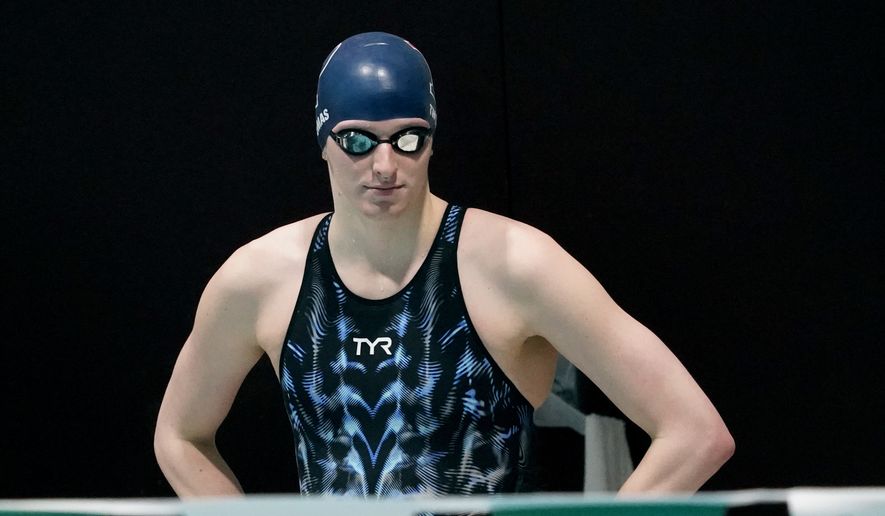Lia Thomas is slated to graduate soon from the University of Pennsylvania, but that doesn’t mean the transgender swimmer’s athletic career is over.
The 22-year-old senior plans to go to law school after graduation, but competing at the 2024 Olympic swimming trials is “still a goal,” according to Sports Illustrated in a Thursday article, “I Am Lia: The Trans Swimmer Dividing America Tells Her Story.”
“I don’t know exactly what the future of my swimming will look like after this year, but I would love to continue doing it,” Thomas said in the article. “I want to swim and compete as who I am.”
In her first interview since speaking in December with SwimSwam, Thomas defended her decision to join the women’s team, where she has smashed women’s records and inflamed the debate over fairness and inclusion in sports, after three years on the men’s side.
“I’m a woman, just like anybody else on the team,” Thomas said. “I’ve always viewed myself as just a swimmer. It’s what I’ve done for so long; it’s what I love.”
Next up is the NCAA Division I women’s swimming championships, where Thomas could become the first openly transgender athlete to win a DI title as well as challenge collegiate records held by Olympic greats Missy Franklin and Katie Ledecky.
Thomas is the top seed in the 200- and 500-yard freestyle, and the tenth seed in the 100. The championships are scheduled for March 16-19 in Atlanta.
Well, here it is — the big Sports Illustrated Lia Thomas story that has been in the works for a while. Posting before reading and so posted without comment. https://t.co/DDwAsP7tLc
— Jim Butler (@JimBUWDawg) March 3, 2022
Thomas denied some of the allegations made by anonymous swimmers in the media, including that she purposely lost to female-to-male transgender swimmer Iszac Henig at a January meet; that she joked about easily cruising to victory; and that she called herself the “Jackie Robinson of trans sports.”
Thomas also expressed no doubts about whether she should be competing against female swimmers as an athlete who has gone through male puberty and associated body changes, many of which hormone therapy doesn’t undo.
“The very simple answer is that I’m not a man,” Thomas said. “I’m a woman, so I belong on the women’s team. Trans people deserve that same respect every other athlete gets.”
USA Swimming, the national governing body, told Sports Illustrated that Thomas would be welcome to represent the U.S. in the 2024 Olympics as long as she meets the transgender-eligibility criteria.
The organization released last month a policy that is considerably more stringent than the previous NCAA rule, requiring male-to-female transgender athletes to keep their testosterone in serum below 5 nanomoles per liter for a continuous period of 36 months.
The NCAA had required only that transgender athletes undergo at least a year of testosterone suppression before competing, a standard that Thomas met.
Thomas also said she wanted to encourage young transgender athletes to be themselves.
“I just want to show trans kids and younger trans athletes that they’re not alone,” Thomas said. “They don’t have to choose between who they are and the sport they love.”
• Valerie Richardson can be reached at vrichardson@washingtontimes.com.




Please read our comment policy before commenting.